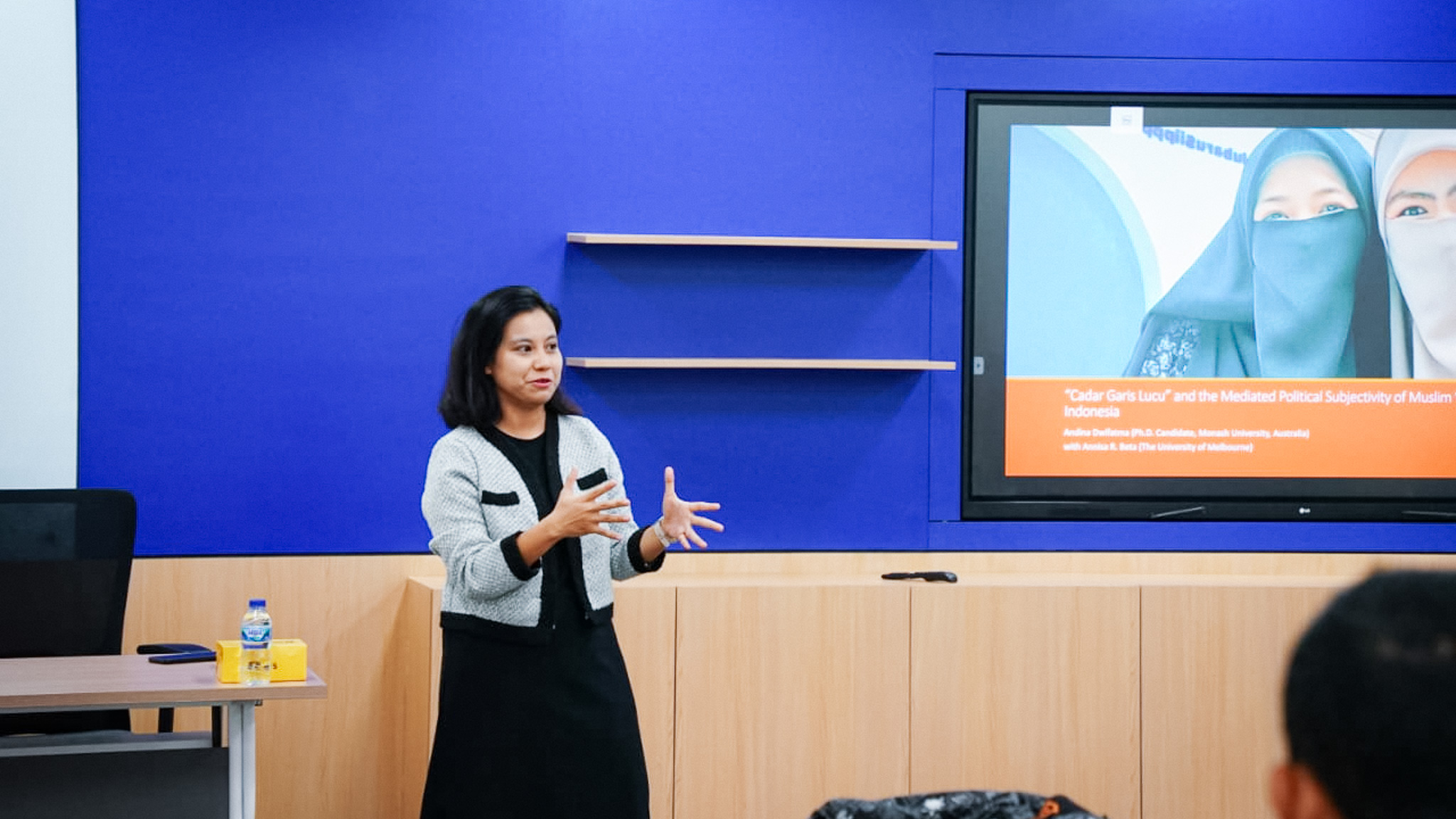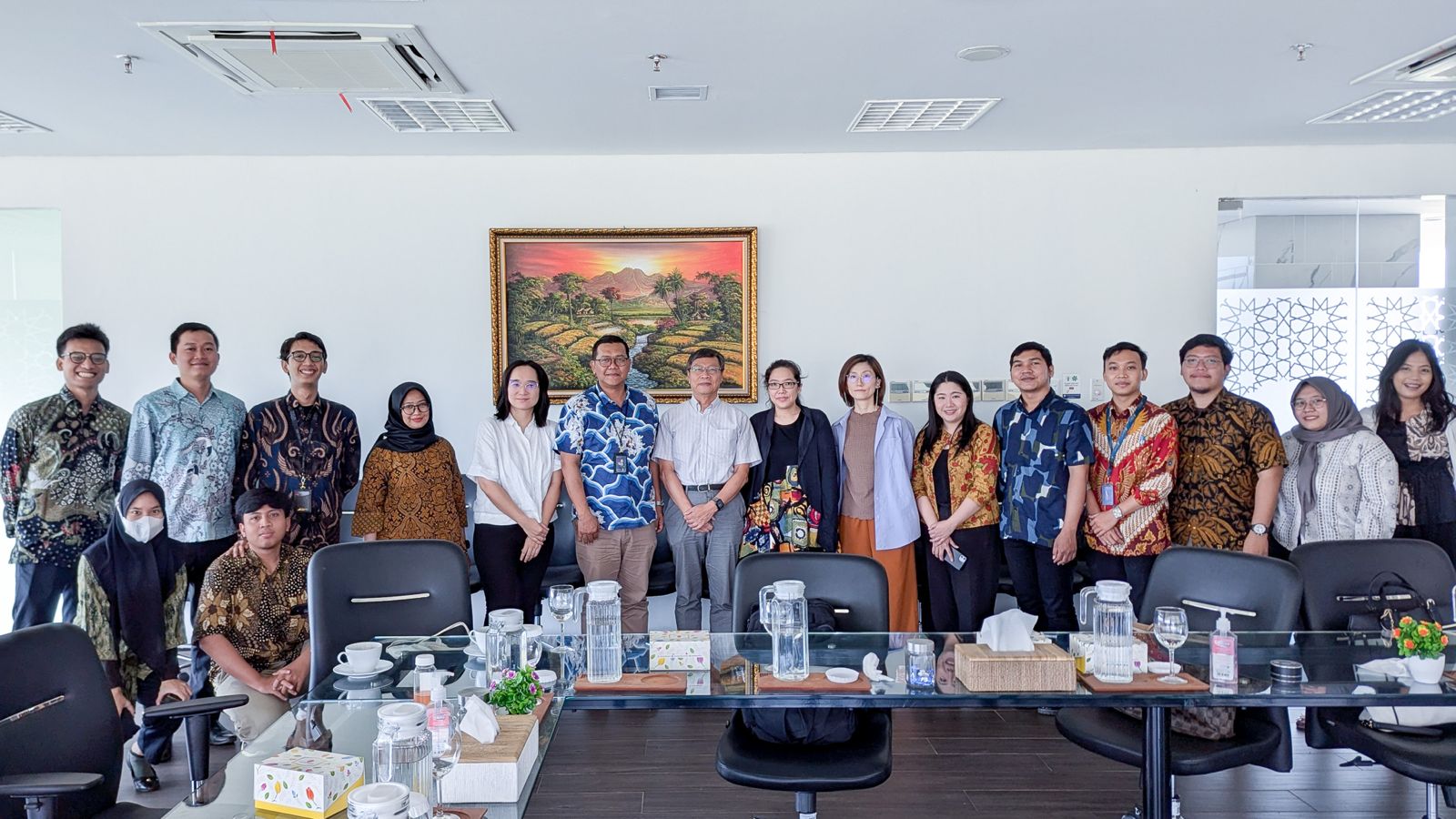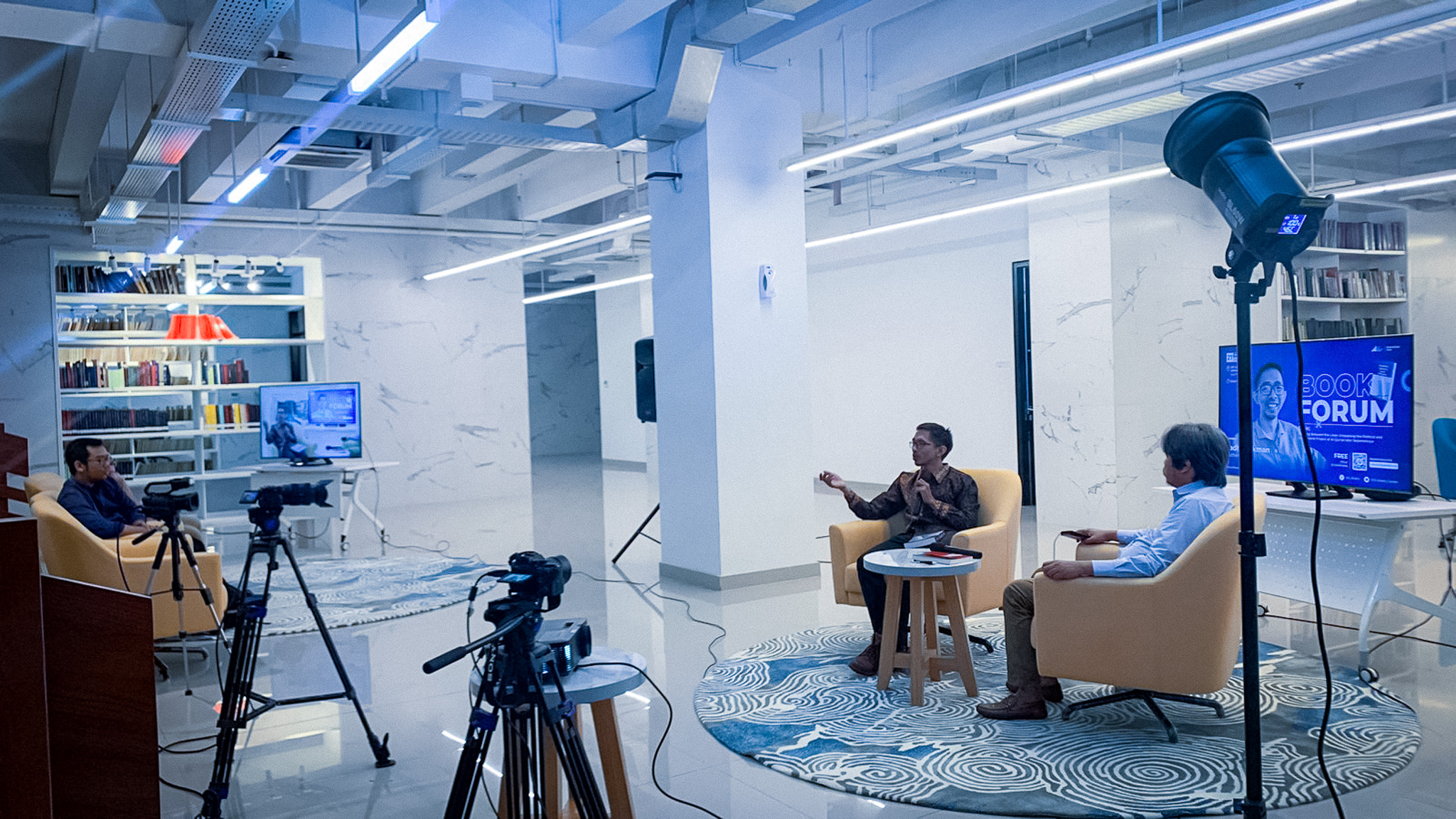Against the Mainstream: Reflecting on Andina Dwifatma's "Cadar Garis Lucu"
April 22, 2024Contributor: Nurul Fatin Afifah

UIII, DEPOK - On Thursday, April 18, 2024, the Faculty of Social Sciences at Universitas Islam International Indonesia (UIII) held the 46th Brownbag session. The session discussed the outstanding work of Andina Dwifatma, a Ph.D. candidate at the School of Social and Political Sciences, Faculty of Arts, Monash University, Australia.
Dwifatma's latest publication, “‘Cadar Garis Lucu’ and the Mediated Political Subjectivity of Muslim Women in Indonesia,” discusses the dynamics of religious identity expression among face-veiled women in Indonesia by studying related activities through the Instagram platform. Cadar Garis Lucu (CGL) is a non-mainstream feminist movement prominently known for its approach to humor, framing, and satire on social media. Faced-veiled women utilize social media as a platform to challenge stigma and stereotypes on their identity.
The discussion opened with a presentation from Dwifatma on the background and evolution of the CGL movement. Dwifatma described how face-veiled women often deal with negative prejudice in public spaces; CGL tries to challenge the narrative by using humor as a medium of communication and image crafting. CGL also conducts campaigns on social media using more innovative ways involving creative visualizations that attract their audiences. These visualizations draw interest in readings and content analysis and are prone to fresh insights. Through the press, CGL successfully campaigns for re-examining socially critical messages and provokes a broader dialogue on the image of face-veiled and hijabi Muslim women in Indonesia.
The three main strategies CGL uses are emphasizing authenticity, using religion as an expression of love and plurality, and collaborating with similar religious social media accounts. First, emphasizing authenticity relates to the definition of the veil as a personal preference representing strength and independence, which means everyone should respect this personal choice. The veil is not an indicator that a Muslimah is subject to pressure, coercion, and oppression; every Muslimah can choose how they want to express their own religious identity. CGL seeks to remove the negative stigma and transform it into a narrative that shows that veiled women are active and influential individuals. Second, Religion, as an expression of love and plurality, relates to how CGL promotes Islam as a religion that loves peace and values inclusivity. CGL posts content that features interfaith dialogue as a form of respect for religious diversity.
The narrative used is tolerance and harmony in a plural society. Third, collaboration with similar religious social media accounts is a form of cooperation built by CGL with other social media accounts with the same vision of supporting gender equality, religious freedom, and social justice. CGL seeks to expand the reach and impact of the messages it campaigns for and the relationships it builds to strengthen the message of inclusivity and diversity.
Dwifatma highlights the multi-dimensional contribution of advanced digitalization to reconstructing feminist discourse in Indonesia. She asserts that Instagram is not only a medium to channel expression but also a medium to balance and counter conservative ideologies. The interaction between digital media and traditional beliefs creates a dynamic space where political subjectivity can emerge and develop. Instagram facilitates CGL's movement to spread ideas to people of different religions and backgrounds. The inclusivity built by CGL becomes a crucial dialogue in issues of feminism and religious fashion, creating a more comprehensive and rich discourse.
At the end of the session, Dwifatma explained that "Cadar Garis Lucu" raises a meaningful dialog about the power of media and personal agency in shaping religious and gender identities. Her work is a testament to the complex interplay between culture, technology, and identity, and it offers an invaluable perspective for anyone interested in discussing the intersecting issues of religion, feminism, and digitalization.
Dwifatma’s work shows that women and men should strive for the importance of equal understanding of women's identity and continue supporting similar women's movements within the broader social and political spectrum.
- Dr. Nia Deliana Navigates India-Indonesia Maritime Softpower at Odisha Research Workshop
- UIII Extends Application Deadline for 2025 International Admissions
- UIII Embraces a Green Ramadan: A Month of Worship and Sustainability
- UIII Evaluates Quality Assurance System, Plans For New Study Programs
- Lost at Sea: UIII’s Dr. Nia Deliana Reveals the Silent Crisis of Sea Refugees
- The Qur’an in a Changing World: Prof. Sahiron Syamsuddin’s Visionary Lecture at UIII
- A Shared Mission of UIII and ICRC in Advocating International Humanitarian Law
- Hartford International University for Religion and Peace Signs MOU with UIII for Future Academic Partnership
- Professor Dian Masyita Honored as a Changemaker in Empowering Communities
- Bridging the Archipelago and the Nile


